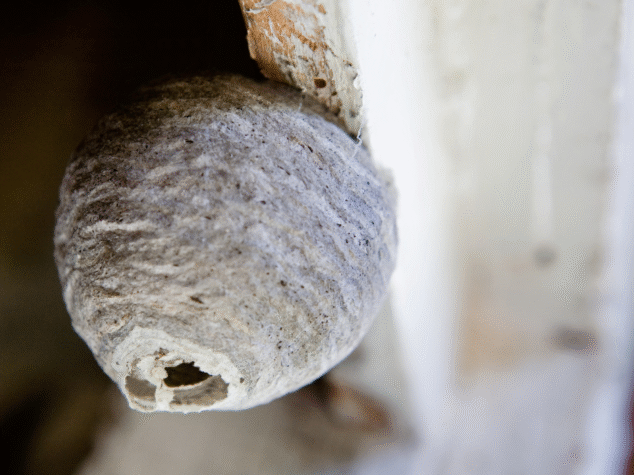As the temperatures rise, so does the activity of stinging insects like wasps and hornets. These flying pests aren’t just a nuisance—they can pose serious risks to your property, employees, and customers. Whether you manage a commercial property, run a franchise, or maintain a home, proactive prevention is key to staying safe and sting-free.
Here’s what you need to know about wasp and hornet nest prevention—and how to protect the people who matter most.
Why Wasp and Hornet Prevention Matters
1. Safety Risks:
Wasp and hornet stings are painful and can trigger severe allergic reactions in some individuals. Multiple stings, especially from aggressive species like yellowjackets, can lead to medical emergencies.
2. Customer Experience:
For businesses—especially those with outdoor seating, playgrounds, or entryways—a visible nest can drive customers away. A single sting incident can damage your reputation.
3. Property Damage:
Certain species, like paper wasps, build nests under eaves, decks, and in attics. Over time, their presence can damage structures and lead to costly repairs.
Common Nesting Spots to Watch
- Under roof eaves and overhangs
- Inside wall voids or attics
- In bushes, trees, and shrubs
- Around outdoor furniture and play structures
- In sheds, garages, and utility boxes
Prevention Tips for Property Owners and Businesses
1. Inspect Regularly:
Begin inspecting your property early in the season (late March through May) when queen wasps and hornets begin looking for nesting spots. Catching and removing small starter nests early is the best defense.
2. Eliminate Attractants:
Wasps are drawn to sugary foods and protein. Keep trash bins sealed, clean up spills quickly, and avoid leaving pet food or leftovers outside.
3. Seal Entry Points:
Check for gaps in siding, attic vents, soffits, and around doors or windows. Use caulk or screens to block off access to potential nesting areas.
4. Use Decoy Nests and Repellents:
Wasps are territorial and often avoid nesting near other colonies. Hanging a fake wasp nest early in the season can deter them. Natural repellents like peppermint oil sprays may help, but aren’t foolproof.
5. Maintain Landscaping:
Trim bushes, trees, and shrubs regularly to eliminate hiding spots. Keep outdoor dining and activity areas well-maintained and clear of overgrowth.
When to Call a Professional
If you notice high wasp or hornet activity or see a fully developed nest, do not attempt to remove it yourself, especially with aggressive species like hornets or yellowjackets. Professional pest control technicians have the gear and experience to remove nests safely and apply treatments that discourage re-nesting.
Commercial properties should consider routine pest prevention services throughout the warm months to avoid mid-season surprises.

